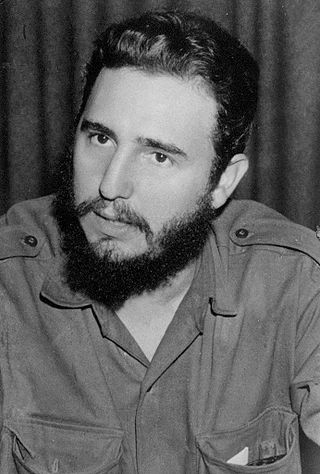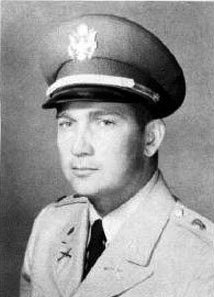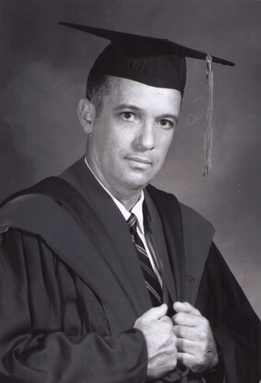Related Research Articles

Cuba's foreign policy has been fluid throughout history depending on world events and other variables, including relations with the United States. Without massive Soviet subsidies and its primary trading partner, Cuba became increasingly isolated in the late 1980s and early 1990s after the fall of the USSR and the end of the Cold War, but Cuba opened up more with the rest of the world again starting in the late 1990s when they have since entered bilateral co-operation with several South American countries, most notably Venezuela and Bolivia beginning in the late 1990s, especially after the Venezuela election of Hugo Chávez in 1999, who became a staunch ally of Castro's Cuba. The United States used to stick to a policy of isolating Cuba until December 2014, when Barack Obama announced a new policy of diplomatic and economic engagement. The European Union accuses Cuba of "continuing flagrant violation of human rights and fundamental freedoms". Cuba has developed a growing relationship with the People's Republic of China and Russia. Cuba provided civilian assistance workers – principally medical – to more than 20 countries. More than one million exiles have escaped to foreign countries. Cuba's present foreign minister is Bruno Rodríguez Parrilla.

Fidel Alejandro Castro Ruz was a Cuban revolutionary and politician who was the leader of Cuba from 1959 to 2008, serving as the prime minister of Cuba from 1959 to 1976 and president from 1976 to 2008. Ideologically a Marxist–Leninist and Cuban nationalist, he also served as the first secretary of the Communist Party of Cuba from 1965 until 2011. Under his administration, Cuba became a one-party communist state; industry and business were nationalized, and socialist reforms were implemented throughout society.

Fulgencio Batista y Zaldívar was a Cuban military officer and politician who served as the elected president of Cuba from 1940 to 1944 and as a military dictator from 1952 until his overthrow in the Cuban Revolution in 1958.

The Cuban Revolution was the military and political effort to overthrow Fulgencio Batista's dictatorship which reigned as the government of Cuba between 1952 and 1959. It began after the 1952 Cuban coup d'état which saw former president and military general, Fulgencio Batista topple the nascent Cuban democracy and consolidate power. Among those opposing the coup was Fidel Castro, then a novice attorney who attempted to contest the coup through Cuba's judiciary. Once these efforts proved fruitless, Fidel Castro and his brother Raúl lead an armed attack on the Cuban military's Moncada Barracks on July 26, 1953. Following the attack's failure, Fidel Castro and his co-conspirators were arrested and formed the 26th of July Movement (M-26-7) in detention. At his trial, Fidel Castro launched into a two hour speech that won him national fame as he laid out his grievances against the Batista dictatorship. In an attempt to win public approval, Batista granted amnesty to the surviving Moncada Barracks attackers and the Castros fled into exile. During their exile, the Castros consolidated their strategy in Mexico and subsequently reentered Cuba in 1956, accompanied by Che Guevara, whom they had encountered during their time in Mexico.
Human rights in Cuba are under the scrutiny of human rights organizations, which accuse the Cuban government of committing systematic human rights abuses against the Cuban people, including arbitrary imprisonment and unfair trials. International human rights organizations such as Amnesty International and Human Rights Watch have drawn attention to the actions of the human rights movement and designated members of it as prisoners of conscience, such as Óscar Elías Biscet. In addition, the International Committee for Democracy in Cuba led by former statesmen Václav Havel of the Czech Republic, José María Aznar of Spain and Patricio Aylwin of Chile was created to support the Cuban dissident movement.

Luis Clemente Posada Carriles was a Cuban exile militant and Central Intelligence Agency (CIA) agent. He was considered a terrorist by the United States' Federal Bureau of Investigation (FBI) and the Government of Cuba, among others.
Jewish Cubans, Cuban Jews, or Cubans of Jewish heritage, have lived in the nation of Cuba for centuries. Some Cubans trace Jewish ancestry to Marranos who came as colonists, though few of these practice Judaism today. The majority of Cuban Jews are descended from European Jews who immigrated in the early 20th century. More than 24,000 Jews lived in Cuba in 1924, and still more immigrated to the country in the 1930s. Following the 1959 communist revolution, 94% of the country's Jews emigrated, most of them to the United States. In 2007 an estimated 1,500 known Jewish Cubans remained in the country, overwhelmingly located in Havana. Several hundred have since immigrated to Israel. Considered one of the most important Latin American Jewish sites, Beth Shalom Temple is the epicenter for current Jewish life in Cuba and still conducts weekly Shabbat services.
Union of Councils for Jews in the Former Soviet Union (UCSJ) is a non-governmental organization that reports on the human rights conditions in countries throughout Eastern Europe and Central Asia, exposing hate crimes and assisting communities in need. UCSJ uses grassroots-based monitoring and advocacy, as well as humanitarian aid, to protect the political and physical safety of Jewish people and other minorities in the region. UCSJ is based in Washington, D.C., and is linked to other organizations such as the Moscow Helsinki Group. It has offices in Russia and Ukraine and has a collegial relationship with human rights groups that were founded by the UCSJ in the countries of the former Soviet Union.

Ricardo Alarcón de Quesada was a Cuban politician. He served as his country's Permanent Representative to the United Nations (UN) for nearly 30 years and later served as Minister of Foreign Affairs from 1992 to 1993. Subsequently, Alarcón was President of the National Assembly of People's Power from 1993 to 2013, and because of this post, was considered the third-most powerful figure in Cuba. He was also until 2013 a Member of the Central Committee of the Communist Party of Cuba.

Lesbian, gay, bisexual, and transgender (LGBT) rights in Cuba have significantly varied throughout modern history. Cuba is now considered generally progressive, with vast improvements in the 21st century for such rights. Following the 2022 Cuban Family Code referendum, there is legal recognition of the right to marriage, unions between people of the same sex, same-sex adoption and non-commercial surrogacy as part of one of the most progressive Family Codes in Latin America. Until the 1990s, the LGBT community was marginalized on the basis of heteronormativity, traditional gender roles, politics and strict criteria for moralism. It was not until the 21st century that the attitudes and acceptance towards LGBT people changed to be more tolerant.

Mariela Castro Espín is the director of the Cuban National Center for Sex Education in Havana, as well as the National Commission for Comprehensive Attention to Transsexual People, and an activist for LGBT rights in Cuba. Castro is an outspoken advocate for the LGBT+ community as well as dissolving some of the antiquated stigmas and stereotypes that surround the community. She is the daughter of former Communist Party First Secretary Raúl Castro and feminist and revolutionary Vilma Espín, and the niece of former First Secretary Fidel Castro.
Fabio Grobart was a Marxist-Leninist revolutionary and politician who played an important role in the 1959 Cuban Revolution that overthrew Fulgencio Batista and led to Fidel Castro's rise to power.

Relations between Cuba and Venezuela were established in 1902. The relationship deteriorated in the 1960s and Venezuela broke relations in late 1961 following the Betancourt Doctrine policy of not having ties with governments that had come to power by non-electoral means. A destabilizing factor was the Cuban support for the antigovernment guerrilla force that operates in remote rural areas. Venezuela broke off relations with Cuba after the Machurucuto invasion in 1967, when Cuban trained guerrillas landed in Venezuela seeking to recruit guerrillas and overthrow the government of Raúl Leoni. Relations were reestablished in 1974.

Yaguajay is a municipality and town in the Sancti Spíritus Province of Cuba. It is located in the northern part of the province, and borders the Bay of Buena Vista to the north. The Caguanes National Park is located in Yaguajay.

Temple Beth Shalom, built in 1952, is a synagogue located in the Vedado neighbourhood of downtown Havana. Temple Beth Shalom is the main synagogue serving Havana's Jewish community of 1,500 people. Founded in 1952, it has been the epicenter of Jewish life in Cuba for over 70 years. The synagogue is often referred to as "El Patronato". Often considered one of the most important sites in all of Latin American Judaism, "El Patronato" welcomes thousands of visitors each year for both Shabbat and tours of Jewish Cuba.
Dr. Bernardo Benes Baikowitz was a prominent Jewish Cuban lawyer, banker, journalist and civic leader, who was responsible for freeing 3,600 Cuban political prisoners in 1978.
Yndamiro Restano Díaz is a Cuban dissident journalist and poet who has won the 1996 Golden Pen of Freedom Award of the World Association of Newspapers and a 1994 International Press Freedom Award from the Committee to Protect Journalists. In 1995, the South Florida Sun-Sentinel described him as "Cuba's leading dissident journalist".

Committees for the Defense of the Revolution, or CDR, are a network of neighborhood committees across Cuba. The organizations, described as the "eyes and ears of the Revolution," exist to help support local communities and report on "counter-revolutionary" activity. As of 2010, 8.4 million Cubans of the national population of 11.2 million were registered as CDR members.

Luis German Valdés Larralde, MD was a Cuban-American surgeon.

Jesús A. Permuy is a Cuban-American architect, urban planner, human rights activist, art collector, and businessman. He is known for an extensive career of community projects and initiatives in Florida, Washington, D.C., and Latin America.